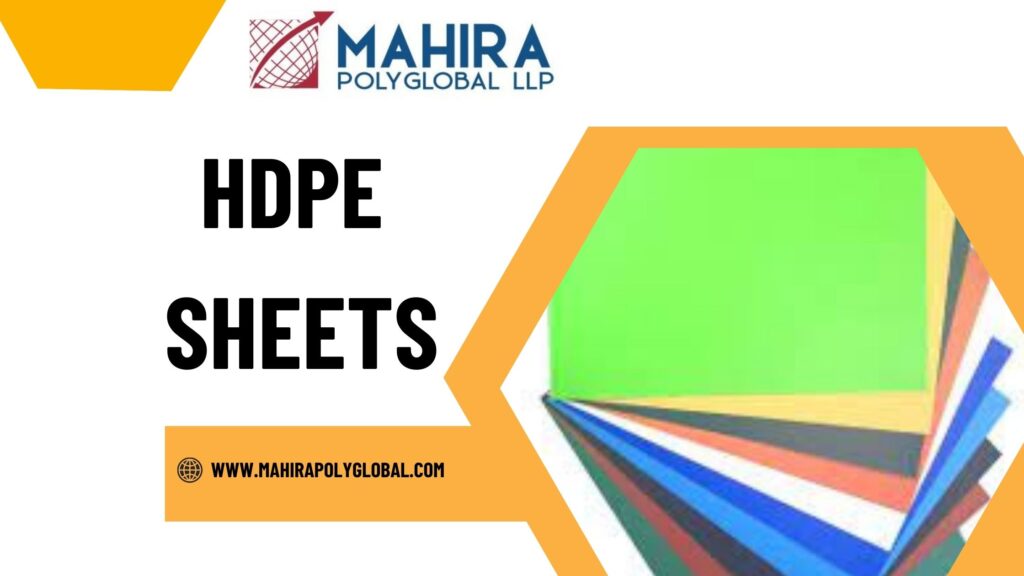
High-Density Polyethylene (HDPE) sheets are widely recognized for their remarkable durability and resistance properties, making them a popular choice across various industries. From construction and packaging to food safety and environmental applications, understanding the characteristics that contribute to the strength and resilience of HDPE sheets can help you make informed decisions for your projects. In this article, we’ll explore the durability and resistance of HDPE sheets, along with their applications, benefits, and answers to frequently asked questions.
What are HDPE Sheets?
HDPE sheets are made from high-density polyethylene, a thermoplastic known for its high strength-to-density ratio. This material is created through a polymerization process that yields a tough, flexible, and lightweight product. HDPE sheets are available in various thicknesses, colors, and sizes, catering to diverse needs in different sectors.
Key Properties of HDPE Sheets
- Impact Resistance: One of the standout features of HDPE sheets is their exceptional impact resistance. They can withstand significant force without cracking or breaking, making them ideal for environments where durability is crucial.
- Chemical Resistance: HDPE sheets exhibit remarkable resistance to a wide range of chemicals, including acids, bases, and solvents. This property ensures that they remain intact and functional in environments where exposure to harsh substances is common.
- Moisture Resistance: The non-porous surface of High Density Plastic Sheets prevents moisture absorption, which helps in reducing the risk of mold and bacterial growth. This characteristic is particularly valuable in food-related applications.
- UV Resistance: HDPE sheets are often treated with UV stabilizers, making them suitable for outdoor use. They can withstand prolonged exposure to sunlight without degrading, fading, or becoming brittle.
- Temperature Tolerance: HDPE sheets can endure a broad range of temperatures, from sub-zero to high heat, without losing their structural integrity. This makes them suitable for various applications, including both hot and cold environments.
Applications of HDPE Sheets
The durability and resistance of High Density Polyethylene Sheet high density polyethylene sheet allow for a wide range of applications across different industries:
1. Construction and Building
HDPE sheets are commonly used in construction for applications such as vapor barriers, geomembranes, and insulation. Their resistance to moisture and chemicals makes them ideal for protecting structures from water damage and soil contamination.
2. Food Processing and Packaging
Due to their non-toxic nature and resistance to moisture, HDPE sheets are widely used in food packaging, storage, and processing. They ensure food safety by preventing contamination and are easy to clean, making them suitable for various food-related applications.
3. Environmental Applications
HDPE sheets are utilized in landfill liners and containment systems to prevent leachate from contaminating soil and groundwater. Their chemical resistance and durability are crucial for maintaining environmental safety.
4. Marine Applications
In marine environments, HDPE sheets are used for boat components, docks, and buoys due to their resistance to saltwater, UV rays, and corrosion. They provide long-lasting solutions in challenging conditions.
5. Industrial Solutions
Many industries use HDPE sheets for creating custom parts, containers, and equipment due to their strength and versatility. They can be fabricated into specific designs to meet unique operational needs.
Benefits of HDPE Sheets
- Cost-Effective: While the initial HDPE Sheets Price may vary based on thickness and size, their durability leads to lower maintenance and replacement costs over time.
- Lightweight: Despite their strength, high density polyethylene sheets are lightweight, making them easy to transport and handle during installation.
- Recyclable: HDPE is a recyclable material, contributing to sustainable practices in various industries. Recycling reduces environmental impact and promotes a circular economy.
- Customizable: HDPE sheets can be manufactured to specific dimensions, colors, and thicknesses, allowing businesses to tailor solutions to their particular needs.
Durability Factors of HDPE Sheets
Several factors contribute to the durability of HDPE sheets:
1. Molecular Structure
The molecular structure of high-density polyethylene provides it with strength and resilience. The tightly packed molecules create a dense network that enhances impact resistance and durability.
2. Additives and Stabilizers
Manufacturers often incorporate additives and stabilizers to improve the properties of HDPE sheets. These enhancements can increase UV resistance, thermal stability, and overall durability.
3. Thickness and Density
The thickness of HDPE sheets directly impacts their durability. Thicker sheets tend to be more robust and can withstand greater forces and environmental stressors. Higher density also contributes to enhanced strength.
4. Manufacturing Processes
Advanced manufacturing processes, such as extrusion and molding, allow for the production of high-quality HDPE sheets with consistent properties. These processes ensure that the sheets meet industry standards for durability and performance.
Conclusion
HDPE sheets are a remarkable material that offers exceptional durability and resistance to a variety of environmental factors. Their strength, chemical resistance, and non-porous nature make them ideal for a multitude of applications, from construction and food safety to marine use and industrial solutions. As businesses and industries increasingly recognize the value of high-density polyethylene sheets, they become integral to modern operations.
For high-quality HDPE sheets that meet your specific requirements, consider Mahira Polyglobal LLP as your trusted supplier, ensuring you receive the best in durability and performance for your projects.
FAQs About HDPE Sheets
Q1: What is the typical price range for HDPE sheets?
A: The HDPE sheets price can vary based on thickness, size, and supplier. Generally, prices can range from a few dollars per square foot to higher amounts for specialized sheets. It’s advisable to check with suppliers like Mahira Polyglobal LLP for accurate pricing.
Q2: Are high density polyethylene sheets safe for food contact?
A: Yes, high density polyethylene sheets are considered safe for food contact and comply with food safety regulations, making them suitable for various food packaging and processing applications.
Q3: Can HDPE sheets be used outdoors?
A: Absolutely! HDPE sheets are UV-resistant and can withstand outdoor conditions without degrading. They are often used in applications such as landscaping, marine environments, and outdoor furniture.
Q4: How do you clean and maintain HDPE sheets?
A: HDPE sheets are easy to clean. Use mild soap and water with a soft cloth or sponge. For tougher stains, a non-abrasive cleaner can be used. Avoid harsh chemicals that could damage the surface.
Q5: Where can I buy high density plastic sheets?
A: High density plastic sheets can be purchased from various suppliers, including Mahira Polyglobal LLP, which offers a wide selection of HDPE products tailored to various needs.


![images[2]](https://viralsocialtrends.com/wp-content/uploads/2024/10/images2.jpg)
